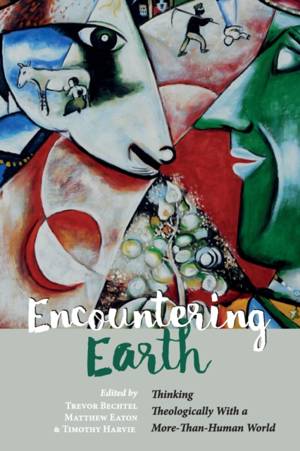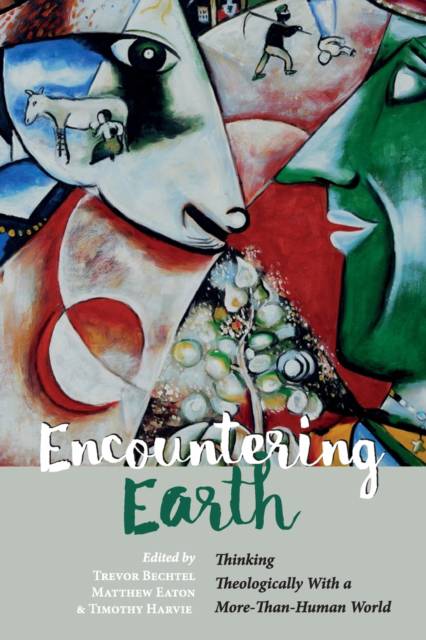
- Afhalen na 1 uur in een winkel met voorraad
- Gratis thuislevering in België vanaf € 30
- Ruim aanbod met 7 miljoen producten
- Afhalen na 1 uur in een winkel met voorraad
- Gratis thuislevering in België vanaf € 30
- Ruim aanbod met 7 miljoen producten
Zoeken
Encountering Earth
Thinking Theologically with a More-Than-Human World
Paperback | Engels
€ 48,95
+ 97 punten
Omschrijving
One day, Matthew Eaton was walking through an impromptu animal shelter display at his local pet store when suddenly an eight-month-old kitten dug his claws into Eaton's flesh. Eaton recognized that the "eyes of this cat and the curve of his claw" compelled a response analogous to those found in the writings of Buber, Levinas, and Derrida. And not just Eaton but a whole community of theologians have found themselves in an encounter with particular places and animals that demands rich theological reflection. Eaton enlisted fellow editors Harvie and Bechtel to collect the essays in this volume, in which theologians listen to horses, rats, snakes, cats, dogs, and the earth itself, who become new theological voices demanding a response. In this volume, the voice of the more-than-human world is heard as making theology possible. These essays suggest that what we say theologically represents not simply ideas of our own making subsequently superimposed onto the natural world through our own discovery, but rather flow from an expressive Earth.
Specificaties
Betrokkenen
- Uitgeverij:
Inhoud
- Aantal bladzijden:
- 276
- Taal:
- Engels
Eigenschappen
- Productcode (EAN):
- 9781498297844
- Verschijningsdatum:
- 14/05/2018
- Uitvoering:
- Paperback
- Formaat:
- Trade paperback (VS)
- Afmetingen:
- 152 mm x 226 mm
- Gewicht:
- 399 g

Alleen bij Standaard Boekhandel
+ 97 punten op je klantenkaart van Standaard Boekhandel
Beoordelingen
We publiceren alleen reviews die voldoen aan de voorwaarden voor reviews. Bekijk onze voorwaarden voor reviews.










